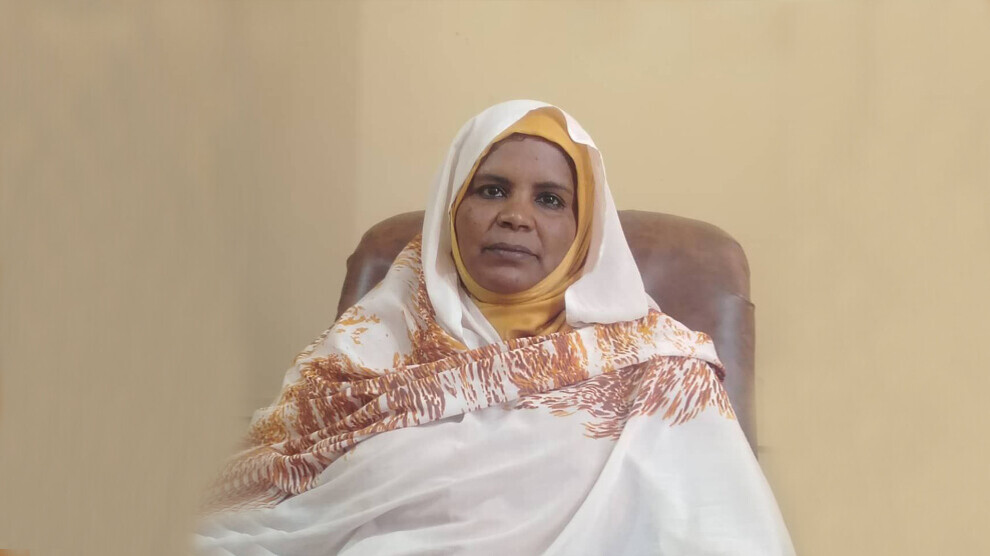Analyst says Sudan’s crisis needs negotiation combined with military action
Sudan has become a burning mass, with no solutions in sight. Only a few humanitarian organizations pay attention, while major powers leave the country forgotten on their negotiation tables

Aya Ibrahim
Sudan — The Sudanese crisis has many dimensions, and the situation in the country, like all Middle Eastern nations, is subject to the ambitions of global powers as well as regional ones. These forces have become partners in the conflict by supporting the warring parties on the ground.
The parties to the conflict are backed by well-known actors, and the reasons behind this support are also clear. But until when will sympathy continue while meaningful discussions about solutions remain absent—solutions that could put an end to the crimes committed against the people of Sudan? This is the question answered by Sudanese political analyst Ishtiaq Abdullah Mohammed Hassan.
The analyst points out that the crisis Sudan is going through can only be resolved through two parallel tracks: negotiation and military action, in order to guarantee the final objective. She explains that the Rapid Support Forces (RSF) constitute a faction unequal to the Armed Forces and follow an indirect strategy supported by other parties.
She believes that the Sudanese Armed Forces are the side responsible for protecting the country, while the RSF is a faction that has split from the original force and relies on support from friendly parties to ensure the success of its indirect strategy. She adds that this situation has contributed to the continuation of the conflict. “The siege of cities, the displacement of civilians, and the launching of drones all reflect the RSF’s indirect strategy,” she says, noting that the impact of events has become direct on ordinary citizens, who remain the primary victims of the conflict.
Regarding the expected scenarios following the RSF’s takeover of Al-Fashir in North Darfur State in western Sudan, she notes that after the events in Al-Fashir, several cities have faced siege and threats. She describes this as an indirect strategy used by the RSF, aimed at destabilizing civilians.
Military power as a tool for achieving objectives
She points out that military power is not an end in itself in the Sudanese conflict, but rather a tool used by states to secure their interests. She stresses that armed force alone cannot resolve the conflict, and that combining negotiations with military action in parallel tracks is crucial to achieving the desired outcome.
Regarding the impact of the Sudanese conflict on other countries, she says that global dynamics make it impossible for any state to live in isolation from its surroundings, as events in one country inevitably affect others. She adds that Sudan, as a regional state and a member of global and regional organizations, both influences and is influenced by regional and international developments. She highlights that Sudan’s borders intersect with tribes shared with neighboring countries, which in turn affects political systems, in addition to overlapping interests and mutual sponsorship among states.
As for the role of countries in resolving the Sudanese crisis, Ishtiaq Abdullah Mohammed Hassan explains that every state is driven by its own interests. She notes that the war has taken on a tribal dimension, with some countries supporting the RSF due to shared tribal ties, while others seek control over resources—even if their goals are long-term.
She stresses that the war is no longer driven by political or ideological thinking, but rather by resources. She adds that Sudan is a resource-rich country and emphasizes the necessity of national unity to build stable foreign relations.
On another note, she affirms that women represent the entirety of society and are a fundamental factor in its stability. She calls for recognizing the role of women and valuing them equally to others. “Some women refrain from participating due to the environment in which they were raised,” she says, adding that women have now begun to realize their worth and their rights.
Regarding how women can confront the violations they face, she explains that what is happening to women is part of the RSF’s indirect strategy aimed at affecting society, considering that women are its central pillar.
In conclusion, political analyst Ishtiaq Abdullah Mohammed Hassan stresses that the future of Sudanese women depends on their awareness and their efforts to strengthen themselves. “We need to empower women psychologically, especially since they are entrusted with roles greater than those of the government
